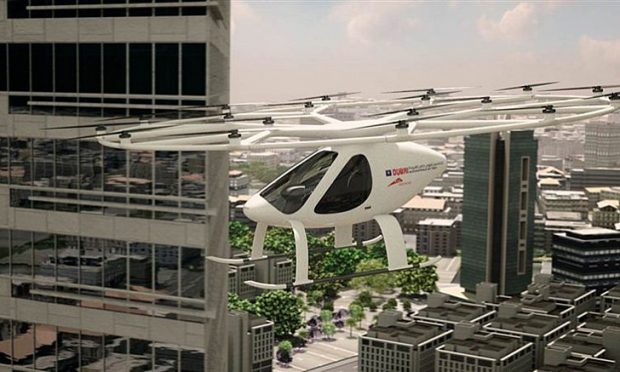Dubai to operate autonomous aerial taxi by the end of 2017

As part of Dubai’s bid to be a city of the future, they plan to have 25 percent of their public transport autonomously controlled by 2030. An exciting aspect of this is the autonomous aerial taxi (AAT) service they announced in February.
Now, they’ve provided an updated timeline for the service’s implementation, announcing that testing will begin toward the end of this year. It will continue for approximately five years until legislation is in place to facilitate a larger expansion.
The goal of the AAT is to eliminate the growing problem of traffic within the city. The service was due to launch at the end of July with the single-seater EHang 184, but the plan now it to use the two-seater Volocopter. Implementation has been delayed to ensure the technology is as safe as it possibly can be.
Dubai will be the first city to use air taxis, and its experiment will have a profound effect on the future of transport, as other cities and companies will be judging the applicability of the idea based on Dubai’s successes or failures. A particularly interested party will be Uber, which is planning to develop an autonomous airborne taxi service of its own.
How to submit an Op-Ed: Libyan Express accepts opinion articles on a wide range of topics. Submissions may be sent to oped@libyanexpress.com. Please include ‘Op-Ed’ in the subject line.
- Libya’s HCS invites applicants for key state roles - December 31, 2023
- UK calls on Iran to prevent escalation in Israel-Hamas conflict - November 05, 2023
- Libyan Interior Minister: Immigrant shelter costs a fortune - November 05, 2023


